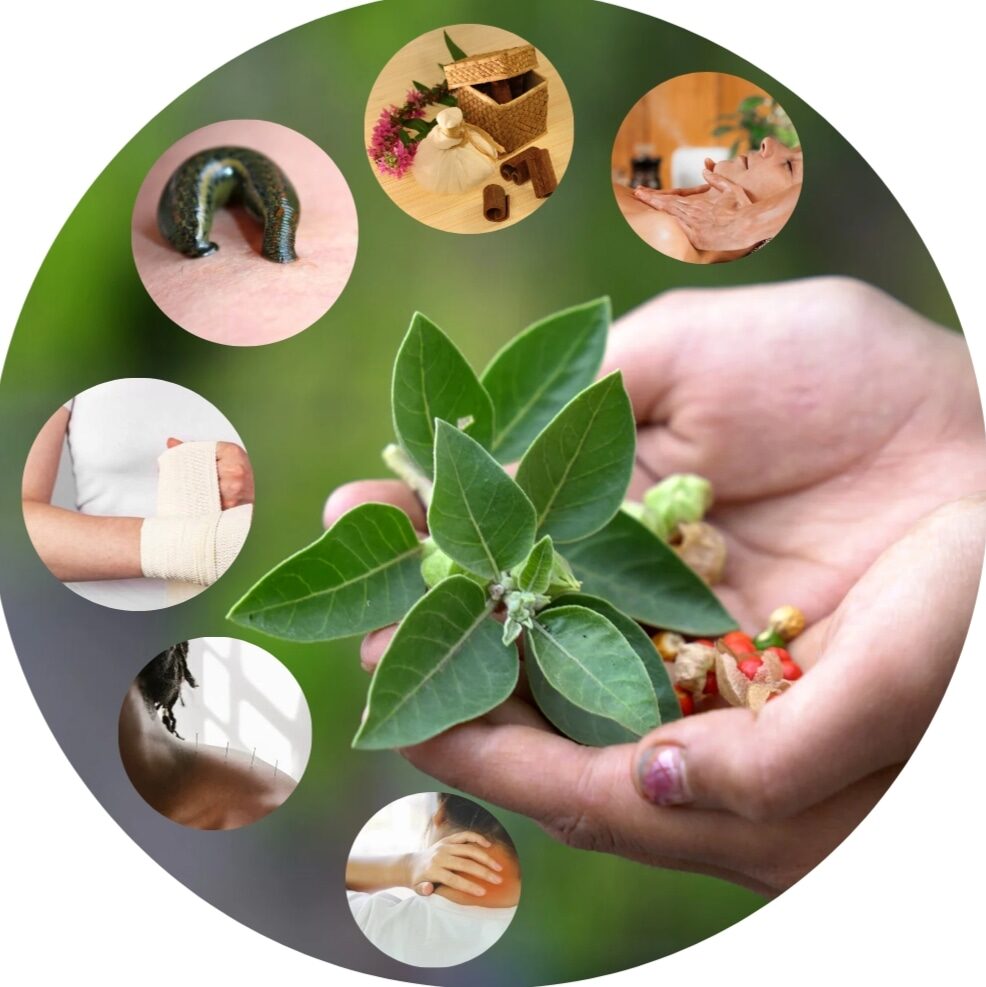Table of Contents
- The Rise of the Ayurveda Wellness Market in 2024: Personalized, Science-Backed, and Technology-Integrated
- The Global Wellness Industry: A Growing Market for Ayurveda
- Personalization: Meeting Modern Consumer Expectations
- Technology in Ayurveda: Making Ancient Wisdom More Accessible
- Scientific Validation: Building Credibility for Ayurveda
- Global Expansion of the Ayurveda Wellness Market
- Challenges and Opportunities for Ayurveda
- Conclusion: Ayurveda’s Future in the Wellness Industry
- Source of Information
- Read other articles
The Rise of the Ayurveda Wellness Market in 2024: Personalized, Science-Backed, and Technology-Integrated
In 2024, Ayurveda, the ancient Indian system of medicine, is experiencing a remarkable transformation. With growing global interest in natural health solutions and holistic wellness, Ayurveda is becoming a major player in the $1.8 trillion global wellness industry. The essence of Ayurveda lies in its natural, holistic approach to healing, which emphasizes balancing the body, mind, and spirit. This article explores how Ayurveda is evolving in response to modern consumer demands, the role of technology in enhancing its reach, and how scientific validation is helping it gain more credibility.

The Global Wellness Industry: A Growing Market for Ayurveda
Expanding Demand for Natural and Holistic Health Solutions
The wellness industry has seen tremendous growth over the past few decades, largely driven by increasing consumer awareness of health and lifestyle diseases such as diabetes, obesity, and hypertension. As more people seek to prevent these conditions through natural and holistic means, they are turning away from processed foods, synthetic medications, and quick-fix solutions. Instead, they are opting for wellness practices that support overall health and longevity. Ayurveda, which focuses on natural remedies and balancing the body, is perfectly positioned to meet this growing demand.
Ayurveda’s Core Philosophy: Balancing the Body, Mind, and Spirit
Ayurveda is based on the concept of balancing the three doshas: Vata, Pitta, and Kapha. Each person has a unique combination of these doshas, and when one or more doshas are out of balance, it can lead to physical or mental health issues. Ayurvedic treatments aim to restore this balance through a combination of diet, lifestyle changes, and natural remedies such as herbs and oils. For centuries, people have turned to Ayurveda to treat ailments, improve digestion, reduce stress, and enhance overall well-being. Today, more people are rediscovering these ancient practices as they look for natural ways to take care of their health.
Personalization: Meeting Modern Consumer Expectations
The Rise of Personalized Wellness Solutions
In 2024, one of the most important trends in the wellness industry is the demand for personalization. Modern consumers, especially Millennials and Gen Z, are no longer interested in generic health products and treatments. Instead, they want wellness solutions that are tailored to their individual needs. Ayurveda, which has always emphasized individualized treatment, is naturally suited to this trend.
Ayurveda’s Personalized Approach to Health
Ayurveda views every individual as unique. No two people are alike, and therefore, no two treatments should be the same. In Ayurveda, an individual’s treatment plan is based on their specific dosha balance, lifestyle, age, body type, and even the season. For example, someone with a Vata imbalance may be prescribed warming foods, stress-relieving herbs, and grounding exercises, while someone with a Pitta imbalance might need cooling foods and relaxation techniques to restore their balance. This highly personalized approach is one of the reasons why Ayurveda is so effective for many people.
Technology in Ayurveda: Making Ancient Wisdom More Accessible
AI and Data-Driven Personalization
In recent years, technology has revolutionized the way we approach wellness. Ayurveda is no exception. Artificial Intelligence (AI) and data analysis are now being used to offer even more personalized Ayurvedic treatments. For example, AI algorithms can analyze a person’s health data—such as their sleep patterns, heart rate, and stress levels—and use that information to provide tailored Ayurvedic recommendations. These recommendations might include specific herbs, diet plans, and lifestyle changes based on the individual’s unique needs.

By integrating AI into Ayurveda, practitioners can provide more precise and effective treatments, making it easier for people to benefit from this ancient system of medicine. This technology-driven approach also allows consumers to receive personalized Ayurvedic advice through apps and online platforms, making Ayurveda more accessible to people all over the world.
Wearable Technology in Ayurvedic Wellness
Another significant advancement in Ayurveda is the use of wearable technology. Wearables, such as fitness trackers and health-monitoring devices, are becoming more popular in the wellness industry. These devices track health metrics like heart rate, sleep quality, and stress levels, providing real-time data on a person’s well-being. In the context of Ayurveda, wearables can be used to detect imbalances in the doshas and suggest specific lifestyle changes or treatments to restore balance.
For example, if a wearable device detects that a person is experiencing high stress levels, it might suggest calming Ayurvedic practices such as meditation, breathing exercises, or specific herbs that help reduce stress and anxiety. This real-time feedback helps individuals stay more in tune with their bodies and make informed decisions about their health based on Ayurvedic principles.
At-Home Diagnostic Kits: Ayurveda at Your Fingertips
The demand for at-home wellness solutions has also fueled the development of Ayurvedic diagnostic kits. These kits allow individuals to assess their health and dosha balance from the comfort of their own homes. For example, a kit might include tools to evaluate digestion, stress levels, or skin health, along with personalized Ayurvedic recommendations for diet, herbal supplements, and lifestyle changes.

At-home diagnostic kits provide a convenient and affordable way for people to engage with Ayurvedic practices. They are especially useful for those who may not have access to a traditional Ayurvedic practitioner but still want to incorporate Ayurveda into their daily lives【8†source】【9†source】.
Scientific Validation: Building Credibility for Ayurveda
Meeting the Demand for Evidence-Based Wellness
While Ayurveda has been practiced for thousands of years, modern consumers are increasingly looking for wellness solutions that are backed by scientific evidence. As a result, Ayurvedic companies and practitioners are investing in scientific research to validate the effectiveness of their treatments and products.
One of the main challenges that Ayurveda has faced in the modern world is the lack of clinical trials and scientific studies to support its claims. However, recent research on Ayurvedic herbs and treatments is beginning to fill this gap. For example, studies on herbs like Ashwagandha have shown that it can reduce stress and improve cognitive function, while Turmeric has been proven to have powerful anti-inflammatory properties.
Ongoing Research and Clinical Trials
Ayurvedic companies are also partnering with universities and research institutions to conduct more in-depth studies on the benefits of Ayurvedic practices. These clinical trials are helping to build credibility for Ayurveda in the wellness industry, particularly among consumers who prioritize science-backed products and treatments. As more research is published, Ayurveda’s reputation as a legitimate and effective health system continues to grow.

Global Expansion of the Ayurveda Wellness Market
Ayurveda’s International Reach
As interest in natural and holistic health solutions grows globally, Ayurveda is expanding its presence in international markets. Ayurvedic products, from herbal supplements to skincare, are now widely available in countries like the U.S., the U.K., and Australia. This global expansion is largely due to the rise of e-commerce, which makes it easier for consumers to purchase Ayurvedic products online, no matter where they live【7†source】.
Wellness Tourism: A Booming Industry
Another area where Ayurveda is gaining global recognition is in wellness tourism. Countries like India and Sri Lanka, which have a long tradition of Ayurvedic medicine, are attracting international visitors who seek immersive wellness experiences. Ayurvedic retreats, which offer personalized treatments, yoga, meditation, and Ayurvedic diets, have become popular destinations for people looking to improve their health and well-being.

Wellness tourism not only promotes Ayurveda on a global scale but also provides a unique and holistic approach to health that many travelers find appealing. These retreats offer a break from the stress of modern life and allow people to focus on restoring their physical and mental balance【9†source】.
Challenges and Opportunities for Ayurveda
Overcoming the Research Gap
While Ayurveda is gaining more acceptance in the wellness industry, there are still challenges that need to be addressed. One of the most significant challenges is the need for more scientific research. Although progress has been made, there is still a lack of large-scale clinical trials that can validate the effectiveness of Ayurvedic treatments on a global level. Continued investment in research will be essential for Ayurveda to gain wider acceptance in the scientific and medical communities.
Regulation and Standardization
Another challenge facing the Ayurveda wellness market is the need for regulation and standardization. As Ayurvedic products and services become more popular, it is important to ensure that they meet high-quality standards. Without proper regulation, there is a risk that some products may not be as effective or safe as they claim to be. Establishing standardized practices and ensuring that products are produced in accordance with strict quality control guidelines will help maintain consumer confidence in Ayurvedic wellness.
Conclusion: Ayurveda’s Future in the Wellness Industry
The Ayurveda wellness market is on the rise in 2024, driven by growing consumer demand for natural, personalized, and science-backed health solutions. With the integration of technology, such as AI and wearable devices, Ayurveda is becoming more accessible to people all over the world. At the same time, ongoing research and scientific validation are helping to build credibility for Ayurveda, positioning it as a legitimate and effective system of wellness.
As the global wellness industry continues to expand, Ayurveda is poised to play a central role in the future of health and well-being. With its holistic approach, focus on balance, and emphasis on personalization, Ayurveda offers a unique and powerful alternative to conventional medicine. As more people seek natural and sustainable ways to take care of their health, Ayurveda will likely continue to grow and evolve, meeting the needs of modern consumers while staying true to its ancient roots.
Source of Information
- AI Integration in Ayurveda – Discusses how AI is being used in Ayurveda for personalized healthcare solutions.
- Ayurveda Wellness Market 2023-2028 – An analysis of market trends, growth factors, and forecasts for the Ayurveda market from 2023 to 2028.
- The Rising Popularity of Ayurveda in the Global Wellness Industry – Highlights the factors driving the global expansion of Ayurveda, including increased consumer interest in natural health solutions.
- Ayurveda Market Size, Share, and Growth – A detailed market report on Ayurveda, with insights into market size, share, and growth projections.
Read other articles
- Top 10 Most Useful Instruments in Physiology- Part 1
- Top 10 Most Useful Instruments in Physiology- Part 2
- Top 10 Most Useful Instruments in Physiology- Part 3
- Top 20 Most comely Useful Instruments in Physiology lab with their classification- part 4
- BEST AYURVEDIC DIET AND NUTRITION GUIDE
- AYURVEDA INTRODUCTION
If you have any queries regarding this article reach us @globeayush-com and contact us






